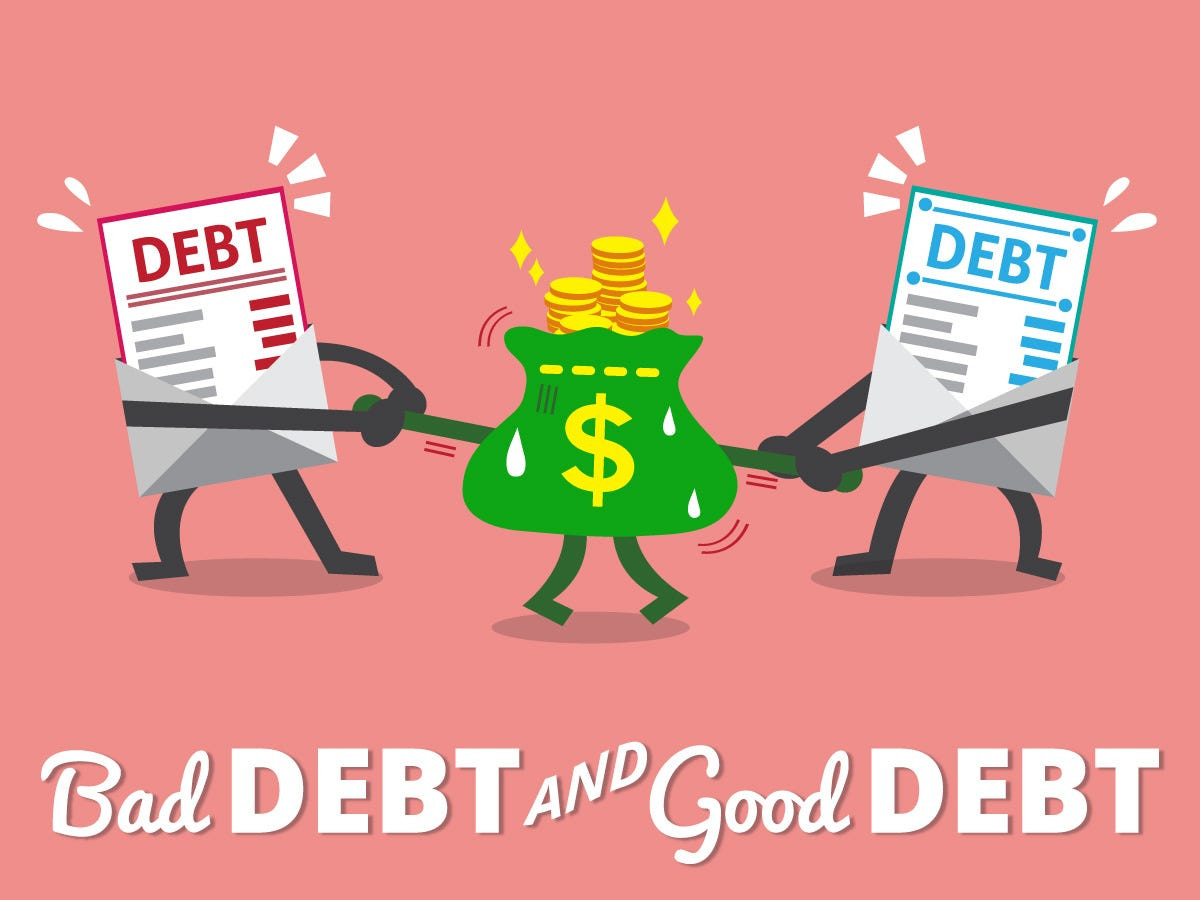Best Strategy for Managing both Good Debt and Bad Debt

Debt plays a significant role in personal and business finances, influencing lives in many ways. It can provide opportunities for growth and prosperity, but it can also lead to financial strain if not managed carefully. Good debt and bad debt have become a part of everyday life, with individuals often finding themselves balancing between the two. While good debt is typically associated with investments that increase in value over time, bad debt is linked to expenses that offer little or no long-term benefit. Understanding how to manage both types of debt is crucial for financial well-being.
The lines between good and bad debt can sometimes blur, making it challenging to stay on top of finances. With a clear strategy, the negative impact of bad debt can be minimized, while the benefits of good debt can be maximized. Various strategies have been used to achieve this balance, helping people stay financially healthy without falling into unnecessary traps. The following points offer insights into how good and bad debt can be approached, managed, and improved over time.
What Causes Debt, and How Can It Be Managed?

Debt is often accumulated for several reasons, with good debt typically arising from investments in education, property, or business. It is often encouraged because it helps to build long-term value. On the other hand, bad debt tends to stem from expenses such as credit card bills, loans with high interest rates, or purchases of depreciating items. Bad debt often occurs when spending habits spiral out of control or unexpected financial emergencies arise, leading to a cycle of borrowing that can become difficult to break.
Managing both types of debt requires different approaches. Good debt is best handled by ensuring that repayments are made on time and that any interest rates are carefully monitored to avoid unnecessary costs. It is usually recommended that good debt is not paid off too quickly, as it can help maintain liquidity for other important financial needs. Bad debt, however, should be tackled aggressively, with high-interest debt paid off as soon as possible to avoid growing balances. When dealing with debt, individuals are encouraged to regularly review their financial situation to ensure that spending remains under control.
The Effects of Mismanagement and How They Impact Financial Health
When debt is mismanaged, the effects can be wide-reaching. The consequences of bad debt are often more immediate, with individuals experiencing financial strain as interest rates rise, and repayments become harder to meet. A downward spiral can occur, with late fees and penalties making it harder to reduce the debt, and additional borrowing becoming necessary to cover expenses. This situation can have a direct impact on credit scores, making it difficult to secure loans or mortgages in the future.
Good debt, though generally less harmful, can still cause issues if mismanaged. Failing to keep up with repayments can lead to similar financial consequences as bad debt, with interest accumulating and credit scores being affected. Additionally, overcommitting to good debt can result in less available cash for other important expenses, causing financial strain. It has been noted that without careful planning, even investments in education or property can become burdensome. By paying close attention to both good and bad debt, long-term financial stability is more easily maintained.
Strategies for Preventing Bad Debt and Improving Financial Habits

Preventing bad debt can be achieved by developing sound financial habits. One of the most effective methods involves creating a budget and sticking to it, ensuring that unnecessary purchases are avoided. Savings should be built for unexpected expenses to reduce the need for borrowing in emergencies. It is often recommended to avoid using credit cards for everyday purchases unless they can be paid off in full each month. Careful use of credit can prevent debt from accumulating and reduce the risk of financial trouble.
Good debt can be improved by ensuring that loans or investments are carefully considered before they are taken on. Researching interest rates and ensuring that the repayment terms are favorable can prevent future issues. Planning for large purchases or investments, such as a home or education, can help to avoid borrowing more than necessary. Individuals are encouraged to seek financial advice where needed and to review their financial situation regularly, ensuring that both good and bad debt are managed effectively.
Debt plays a vital role in personal finance, offering opportunities for growth or becoming a burden if not managed carefully. By understanding the causes of both good and bad debt, the effects of mismanagement, and the strategies for prevention, financial stability can be maintained. Through careful planning, budgeting, and an ongoing review of financial habits, debt can be controlled and its negative impact minimized.





